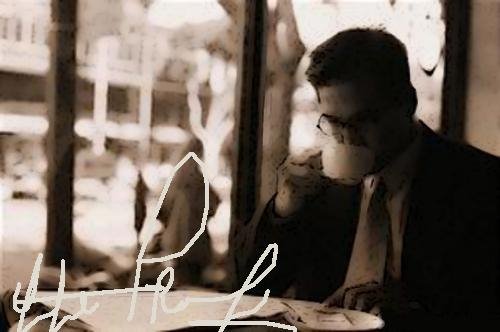 What The Prof Is Reading Now
What The Prof Is Reading Now One might well think - today - that mere Christianity extends no further than the pews or the pulpit. But when we observe believers actively living and engaging the culture around them, from library excursions to Starbuck's forages, we realise that the opportunities to further and enliven the Kingdom are all around us.
Augustine's City of God is without a doubt, one of the greatest monumental works of religious inspiration. Although some writers have indicated that it was written as a sort of literary tombstone to Roman culture, Augustine's principles shine radiantly through, as he deals with the corruption of the Roman's pursuit of earthly pleasures: "grasping for praise, open-handed with their money; honest in the pursuit of wealth, they wanted to hoard glory."
Augustine contrasts his condemnation of Rome with an exaltation of Christian culture. The glory that Rome failed to attain will only be realised - he reminds us -by citizens of the City of God; the physical manifestation of the heart of God...the Community of Believers.
All throughout the work, he contrasts (often starkly) "Your Virgil" and "Our Scriptures," showing the disparity between the pagan and Christian cultures.
As one scholar points out, "Even if Augustine's prose strikes modern ears as a bit bombastic, and if his polarized Christian/pagan world is more binary than the one we live in today, his arguments against utopianism and his defense of the richness of Christian culture remain useful and strong."
Overall, the work is beautiful and encouraging, rich and full of vibrant Christianity. One must, however, be prepared to wade into the thick mire of learned Classicalism if one will obtain the true wine from the fruit he offers. Some of his analogies, and some of his colloquialisms will send you scurrying to latin references (or to the Oxford English Concise), but you will never feel so firmly sure of the final state of the Christian Church, as when you delight in the City of God. It's just another reminder that God is not absent in the Coffeehouse.
"The human mind can understand truth only by thinking, as is clear from Augustine." - Saint Thomas Aquinas
